Storytelling in the age of AI: A CNN Academy summer school and simulation
Dublin, Ireland
All application queries should be directed to catherine.carey@ucd.ie
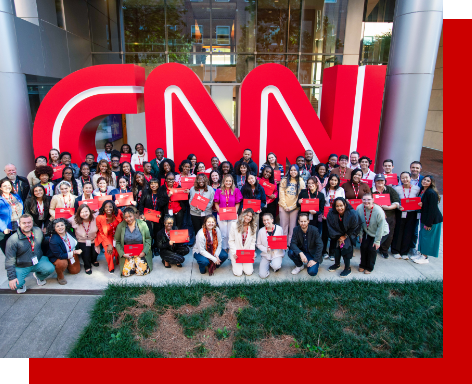
READY TO
APPLY?
Applications Open
28
Nov 2024
31
Mar 2025
Course Dates
30
June 2025
12
July 2025
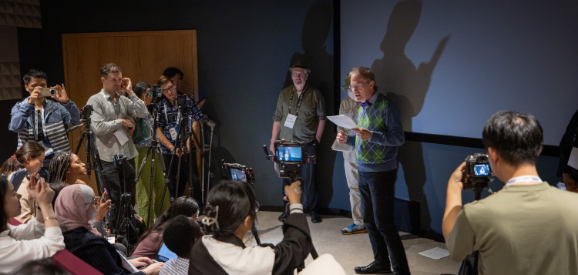
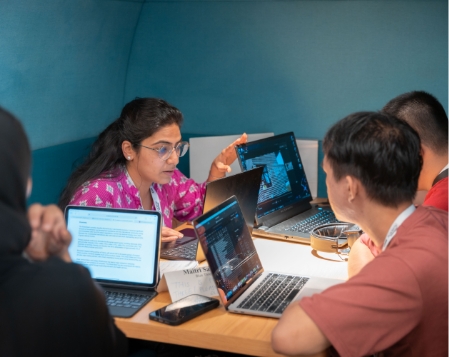
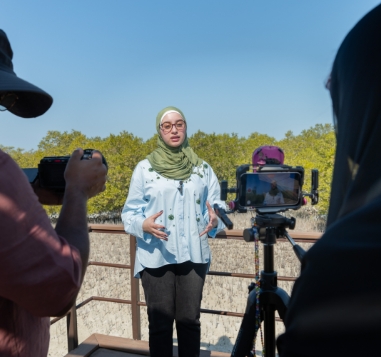
immersive program & realistic simulation
Hear from CNN journalists, industry experts and media analysts about how technology is transforming the way we tell stories and the challenges of international reporting.
Then put those skills into practice during a realistic simulation where you’ll be split into groups, dispatched to a fictional country and set the task of reporting on an unfolding breaking news story.
Choice of Modules
The Summer School consists of two modules and participants are welcome to choose to take module 1 on its own or both modules together.
Module 1: Storytelling in the age of AI
This one-week program is designed for those eager to stay ahead
with the latest skills and knowledge in journalism. CNN journalists and instructors
will provide hands-on audio, video and digital production training in person.
Participants will also benefit from masterclasses by leading industry
professionals, ensuring they acquire a diverse skill set vital for navigating the
complexities of modern journalism. The module includes:
• Multiplatform content production
• Mobile storytelling, shooting and editing
• Verification techniques and open-source intelligence
• AI and the evolution of news media technologies
• Practical exercises
View Schedule
Monday, June 30th
Introduction to CNN
Art of Storytelling
Group exercise: Discuss story ideas
LUNCH
Mobile Journalism training 1
Framing, lighting and sound using a cell phone
Tuesday, July 1st
Mobile Journalism training 2
Editing on cell phones
Sequences and transitions
LUNCH
Writing for Digital
Digital video
Reversioning for Digital
Wednesday, July 2nd
Introduction to open-source Intelligence
Open-source intelligence masterclass
LUNCH
Exercise: Scavenger hunt across Dublin city center using open-source techniques to uncover locations
Thursday, July 3rd
Introduction to artificial intelligence
Artificial intelligence masterclass
LUNCH
Exercise: Use artificial intelligence to sift through data and solve problems
Friday, July 4th
Exercise: Students work in groups to shoot their stories on their cell phones in Dublin
LUNCH
Students edit their reports, including a video and digital piece
Viewing of reports + feedback
Saturday, July 5th
All students take a trip to Belfast in Northern Ireland to learn about its checkered history and hear from those caught up in the troubles of the past.
Module 2: CNN Academy simulation
This immersive program unites emerging journalists in a week-long experience of intensive journalism training. Faced with a breaking news story unfolding in real-time, students will test and refine their skills in a realistic news environment. Participants will be split into groups and tasked with producing a comprehensive news report by the end of the week, shot and edited on their phones. The winners will be selected in a closing ceremony. The module includes:
• Access to a custom-built social media tool
• Mock news conferences
• Interviews with role players
• Trip to a realistic field environment
• Feedback from CNN professionals
View Schedule
Monday, July 7th
Simulation intro
Participants split into teams
Assignment explained
Team ice breaker
LUNCH
News conferences
Team meetings
CNN Academy Masterclass
Opening Dinner
Tuesday, July 8th
Interviews with role players
Participants attend lectures & workshops in their groups
LUNCH
Interviews with role players
Participants attend lectures & workshops in their groups
Wednesday, July 9th
Participants are dispatched to a field assignment to gather elements and conduct on- location interviews
LUNCH
Participants activity
CNN Academy Masterclass
Thursday, July 10th
Interviews with role players
Participants attend lectures & workshops in their groups
LUNCH
Interviews with role players
Participants attend lectures & workshops in their groups
Friday, July 11th
Participants work in groups on paper edits and script with feedback from CNN journalists
LUNCH
Participants work in groups on final edit
Participants submit final edit by deadline
Wrap party
Saturday, July 12th
Awards ceremony
Feedback session from CNN journalists
Feedback session from participants
Wrap
Who is the summer school for?
Students and early-career journalists and media practitioners.
Students should have completed at least one year of university. Students can be from any discipline but must have a strong interest in the field of journalism. Students can take the modules for credit if this is required by their home institution – see below.
For those who have completed a first degree, the modules will provide advanced skilling suited to transitioning to a career in journalism or developing transferable skills in communication and storytelling.
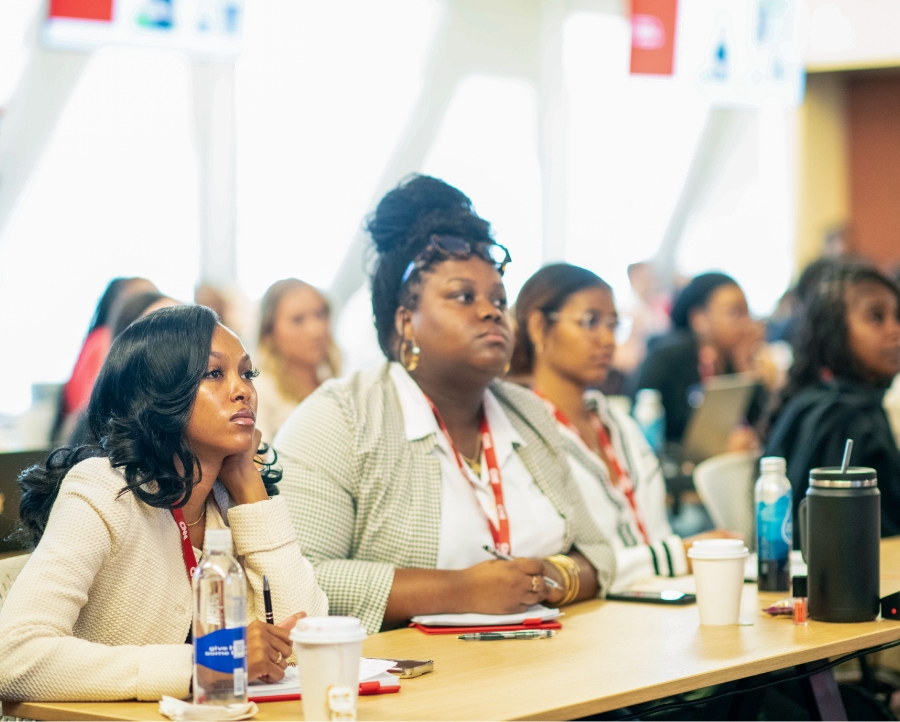
What's included
The two week program includes: Opening and closing ceremonies, masterclasses from industry professionals, trip to Belfast, program activities across Dublin and other cultural events.

Credit
Each of the Summer School modules carries 5 ECTS credits. UCD uses the ECTS European Credit Transfer and Accumulation System (ECTS), based on student workload. Your home institution decides on credits to be awarded for modules completed at UCD.
Note for US-based students: We recommend that 3 US credits be awarded for the successful completion of each module, so 6 US credits for the completion of both modules.
Fees
The fee for the first week, Module 1, is 1,600 euros.
The fee for both weeks, Module 1 + 2, is 3,500 euros.
Participants are welcome to choose to take module 1 on its own or both modules together.
Please note, the fee for tuition does not include accommodation.
Housing
Participants enrolling in either module will be given the option to stay in UCD’s on-campus housing at a cost of $67.25 a night. Please indicate your preference in your application form when prompted to do so. Participants are welcome to not stay on campus but must note that finding accommodation off-campus will be solely their responsibility.
STUDYING AT University
College Dublin
UCD is one of Europe’s leading research intensive universities; an environment where undergraduate education, masters and PhD training, research, innovation and community engagement form a dynamic spectrum of activity.
The international standing of UCD has grown in recent years; it is currently ranked within the top 1% of higher education institutions world wide. UCD is also Ireland’s most globally engaged university with over 38,000 students drawn from 152 countries, including over 5,000 students based at locations outside of Ireland. The University’s main Dublin campus occupies an extensive parkland estate of 133 hectares and offers world-leading facilities.
Study in
Dublin
visitdublin.com
11 amazing places to visit in Dublin
It’s time to make the most of the unique blend of culture to be had in the capital.

visitdublin.com
Dining at the Irish table: your guide to Irish flavours
Here’s a run-down of the most quintessentially Irish ingredients and dishes and where to sample them throughout Dublin.

edition.cnn.com
Top attractions you can’t miss in Dublin, Ireland
Dublin is one of Europe’s smaller capital cities, with just over half a million people, but it has an outsized number of places to see.
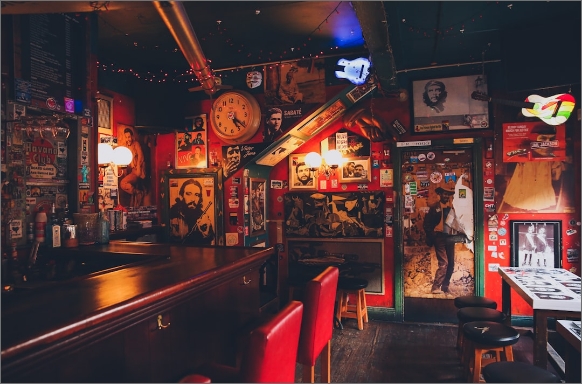
visitdublin.com
Top 10 pubs for Irish traditional music
Whatever the setting, it’s all about craic agus ceol (fun and music), so find a snug and settle in for an earful of Irish history through song.
2023 CNN Academy Climate
Storytelling simulation
Convening at CNN’s state-of-the-art hub in Abu Dhabi in December 2023, more than a hundred aspiring and emerging journalists from around the world engaged in a dynamic and immersive journalism simulation focused on climate reporting.
This unique event was part of CNN Academy, a special initiative designed to empower and upskill the next generation of journalists. This second edition of the CNN Academy simulation aimed to test and refine the skills of the participants by replicating a climate disaster scenario. Set in a fictional country, this multi-faceted exercise engaged trainees in a realistic news environment with the story unfolding in real time over a week.
The simulation was designed and planned by CNN, in collaboration with Prof. Rex Brynen of McGill University, a leader in serious gaming and Jim Wallman of Stone Paper Scissors. Building on the success of CNN Academy’s first newsroom simulation which launched in 2022, this iteration saw participants newsgathering in the field, using a custom-built social media tool and attending mock press conferences and interviews. Each team was tasked with writing, producing, reporting, filming and editing a news package by the end of the week.
Alongside the newsroom simulation, participants also received masterclasses from CNN experts on the power of pictures and storytelling during times of conflict, along with workshops on the importance of data management and archiving, and the complexity of gender reporting.
-
110 participants worked
together in teams
-
34 nationalities represented from
across the world
-
5 hours of press conferences and
scrums
-
300+ interview opportunities
across all groups
-
200+ possible story angles for
teams to pursue
-
400+ social media posts
and emails
-
110 participants worked
together in teams - 34 nationalities represented from across the world
- 5 hours of press conferences and scrums
-
300+ interview opportunities
across all groups -
200+ possible story angles
for teams to pursue -
400+ social media posts
and emails